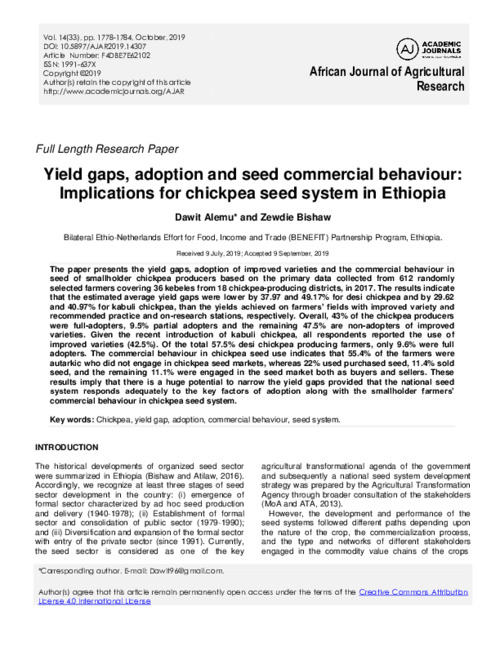Yield gaps, adoption and seed commercial behaviour: Implications for chickpea seed system in Ethiopia
Abstract
The paper presents the yield gaps, adoption of improved varieties and the commercial behaviour in seed of smallholder chickpea producers based on the primary data collected from 612 randomly selected farmers covering 36 kebeles from 18 chickpea-producing districts, in 2017. The results indicate that the estimated average yield gaps were lower by 37.97 and 49.17% for desi chickpea and by 29.62 and 40.97% for kabuli chickpea, than the yields achieved on farmers’ fields with improved variety and recommended practice and on-research stations, respectively. Overall, 43% of the chickpea producers were full-adopters, 9.5% partial adopters and the remaining 47.5% are non-adopters of improved varieties. Given the recent introduction of kabuli chickpea, all respondents reported the use of improved varieties (42.5%). Of the total 57.5% desi chickpea producing farmers, only 9.6% were full adopters. The commercial behaviour in chickpea seed use indicates that 55.4% of the farmers were autarkic who did not engage in chickpea seed markets, whereas 22% used purchased seed, 11.4% sold seed, and the remaining 11.1% were engaged in the seed market both as buyers and sellers. These results imply that there is a huge potential to narrow the yield gaps provided that the national seed system responds adequately to the key factors of adoption along with the smallholder farmers’ commercial behaviour in chickpea seed system

